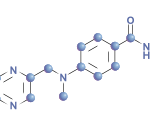TR: What can’t these findings tell us?
CD: This study didn’t take into account whether patients were medication adherent at the nine-month follow-up. Although the patient global assessment score is part of the DAS28-CRP, this study also doesn’t tell us if patients’ quality of life improved while they were on treatment.
TR: What are the limitations of the target trial emulation framework as it pertains to observational study trial design? What do you think the future holds regarding rheumatology and target trial emulation observational studies?
CD: There are many limitations in using the target trial emulation framework. For example, the observational data may not have complete information on all the factors that explain why patients were given one treatment or another. Nevertheless, I think the potential for the target trial emulation framework and associated methods to generate high-quality, real-world evidence in rheumatology research is really exciting, especially with the growing use of EMRs. For example, we may be able to do more studies with more patients to understand how effective biologic or targeted synthetic DMARDs are in routine clinical practice and, perhaps, eventually understand which subgroups respond to one medicine over another.
Conclusion
Dr. Deakin and colleagues used a novel observational study design to demonstrate that both adalimumab and tofacitinib are effective in patients with RA who have never before taken a biologic or targeted synthetic DMARD. Both therapies resulted in substantial reductions in disease activity at three and nine months, with tofacitinib slightly more effective than adalimumab at the three-month time point. Although not without limitations, the target trial emulation framework could allow us to conduct larger, more reliable observational studies for our rheumatology patients in the future.
Samantha C. Shapiro, MD, is the executive editor of Harrison’s Principles of Internal Medicine. As a clinician educator, she practices telerheumatology and writes for both medical and lay audiences.
References
- Fraenkel L, Bathon JM, England BR, et al. 2021 American College of Rheumatology Guideline for the Treatment of Rheumatoid Arthritis. Arthritis Rheumatol. 2021 Jul;73(7):1108–1123.
- Smolen JS, Landewé RBM, Bijlsma JWJ, et al. EULAR recommendations for the management of rheumatoid arthritis with synthetic and biological disease-modifying antirheumatic drugs: 2019 update. Ann Rheum Dis. 2020 Jun;79(6):685–699.
- Deakin CT, De Stavola BL, Littlejohn G, et al. Comparative effectiveness of adalimumab vs tofacitinib in patients with rheumatoid arthritis in Australia. JAMA Netw Open. 2023 Jun 1;6(6):e2320851.
- Sherman RE, Anderson SA, Dal Pan GJ, et al. Real-world evidence—What is it and what can it tell us? N Engl J Med. 2016 Dec 8;375(23):2293–2297.
- Hernán MA, Robins JM. Using big data to emulate a target trial when a randomized trial is not available. Am J Epidemiol. 2016 Apr 15;183(8):758–764.
- Fleischmann R, Mysler E, Hall S, et al. Efficacy and safety of tofacitinib monotherapy, tofacitinib with methotrexate, and adalimumab with methotrexate in patients with rheumatoid arthritis (ORAL strategy): A phase 3b/4, double-blind, head-to-head, randomised controlled trial. The Lancet. 2017 Jul 29;390(10093):457–468.


